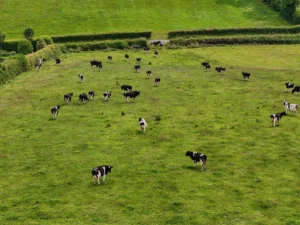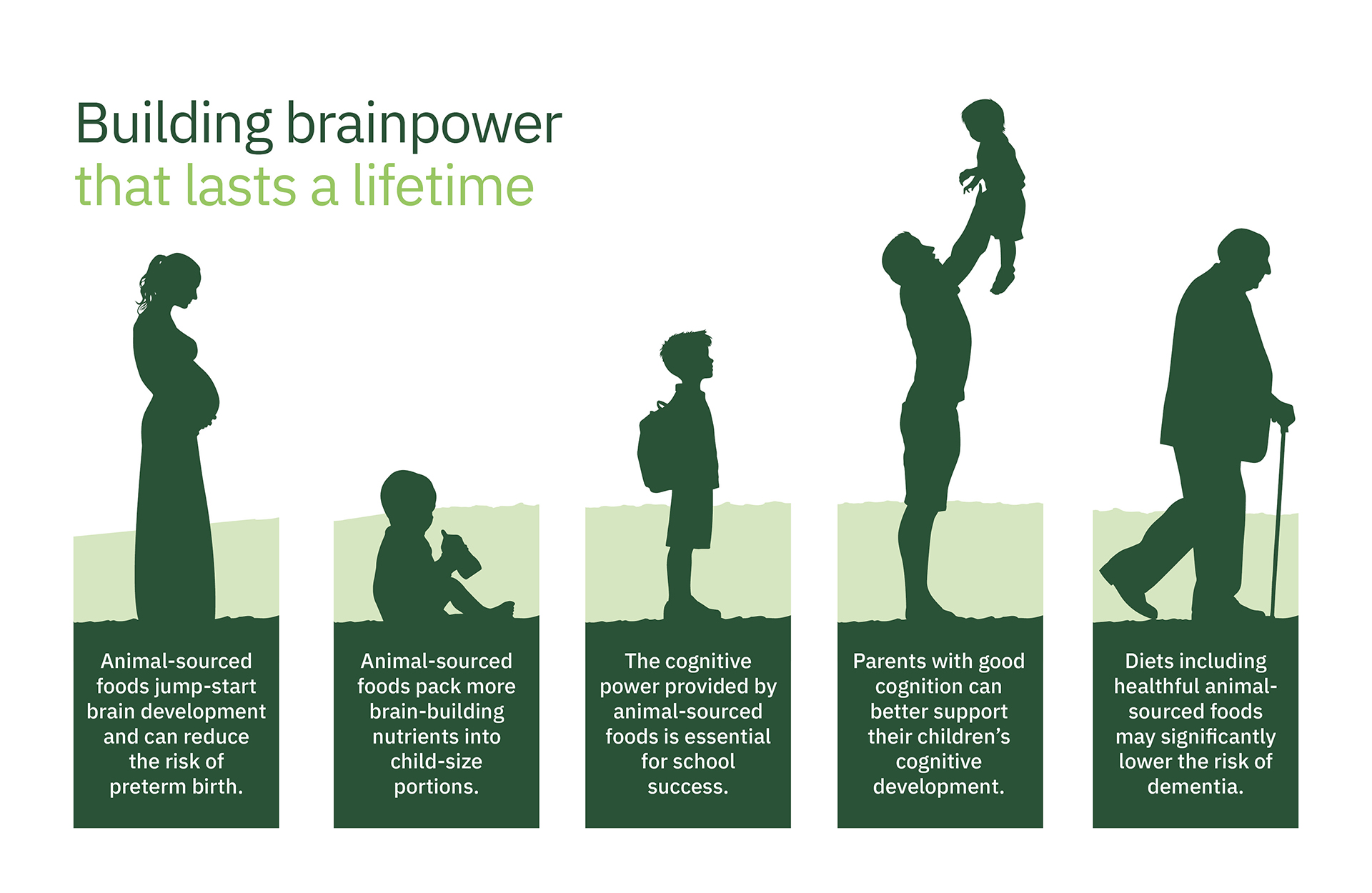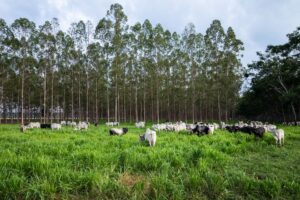
Cattle, greenhouse gases and the case for better methane metrics
Why the global warming potential of methane emissions from cattle production needs a closer look
The brain, like any other body part, requires specific nutrients to develop and function at its best. While debates continue about which source of these nutrients is most optimal, recent research suggests that a balanced diet of both plant-sourced and animal-sourced foods is ideal for building a powerful, resilient brain.
Some plant- and animal-sourced foods actually support one another nutritionally. For example, vitamin B12, which is only available from animal sources, boosts the absorption of iron and zinc from fiber-rich plant-based foods.
Animal-sourced foods are both more bioavailable and more nutrient-dense, providing a high concentration of essential nutrients per ounce. For instance, you’d have to eat 48 ounces of raw spinach to consume the same amount of iron found in one 4-ounce steak.
Because of this, even vegetarians who eat a plentiful variety of plant-based foods can be deficient in protein. One study in the U.S. found that 11% of adults ages 19–50 regularly had protein intakes below the estimated average requirement (EAR), and 22% fell below the recommended daily allowance (RDA).
Nutrient density is also of special importance in the earliest and latest years of life. Since small children can only eat small portions, every bite needs to pack a nutritional punch — especially as those years are the prime time for building a healthy body and brain. Maximizing protein can also make a big difference in health and quality of life for the elderly, whose appetites may have dwindled.
Soy products are popular among those seeking exclusively plant-based nutrition, and for good reason: Soy provides complete proteins, meaning that it contains the essential amino acids. It’s also rich in many B vitamins, as well as iron, magnesium and polyunsaturated fats, all of which support brain health.
But soy is not a direct substitute for meat, fish or dairy. It’s missing some essential nutrients, including vitamin B12. It also features some nutrient forms that aren’t ideal; for instance, the iron in soy is non-heme iron, meaning that it’s less bioavailable than the heme iron contained in many animal-derived foods.
Still, soy can really boost the nutritive value of a plant-based diet. However, many soy products are heavily processed to mimic the taste and texture of meat — and this process can strip away beneficial nutrients and add unhealthy ingredients, such as excessive sodium, artificial additives and unhealthy fats. Natural soy-based foods, such as tofu and tempeh, are often a healthier choice.
As in so many parts of life, balance is key.
“Some nutrients are only found in animal-sourced foods and some are only found in plant-sourced foods,” said Dr. Stephan van Vliet, human nutrition scientist at Utah State University. “Combining the best of the two gives us the best of both worlds.”
By combining the strengths of both plant- and animal-sourced food, we can ensure that our brains — and, by extension, the rest of our bodies — get the comprehensive nutrition they need to truly thrive.

Cognition is how our brains help us understand and interact with the world. It encompasses a wide range of abilities that are critical for achieving success in our day-to-day lives and over the long term:
Despite the negative attention they often receive, cows can be part of the solution.
As efficient upcyclers that can also capture and store carbon through the simple act of grazing, cows can have a surprisingly positive impact on the environment. And the milk, meat and other byproducts we get from cows are extremely nourishing and widely accessible sources of many vitamins and minerals that human beings need to survive. All things considered, cows are a part of a sustainable diet, vital to nourishing people while also protecting the planet we share.

Keeping our bodies healthy supports strong cognition, too. For instance, in addition to unlocking better physical and emotional health, regular exercise can reduce the risk of cognitive decline, including dementia.
Nutrition is also essential to building and maintaining cognition. Since our brains need a range of nutrients found in various sources, a balance of both plant- and animal-sourced foods — the less processed, the better — is ideal for creating the kind of cognitive strength and flexibility that helps us live life to the fullest.
Our brains help us navigate the complexities of life in a myriad of ways. By boosting our cognitive power — and that of our children — through learning, exercise and nutrition, we can set the best foundation for ongoing happiness and success.

Why the global warming potential of methane emissions from cattle production needs a closer look

At COP30, the world’s eyes are on Brazil, and the cattle ranchers leading a global transformation.

Restoring 40 million hectares of pasture could feed billions and ease pressure on the Amazon. Is the world paying attention?

New mini-doc explores deforestation, food security and the Brazilian cattle sector’s path to a more sustainable future

Mention Brazilian beef, and you’re likely to spark discussion about familiar themes: deforestation, emissions and blame. What do we find when we dig deeper? Here are the answers to five top questions about Brazil’s role in protecting the Amazon and feeding the world.

From science to the big screen: Discover how a single question grew into a global journey.
Receive notifications about the release date, new online content and how you can get involved